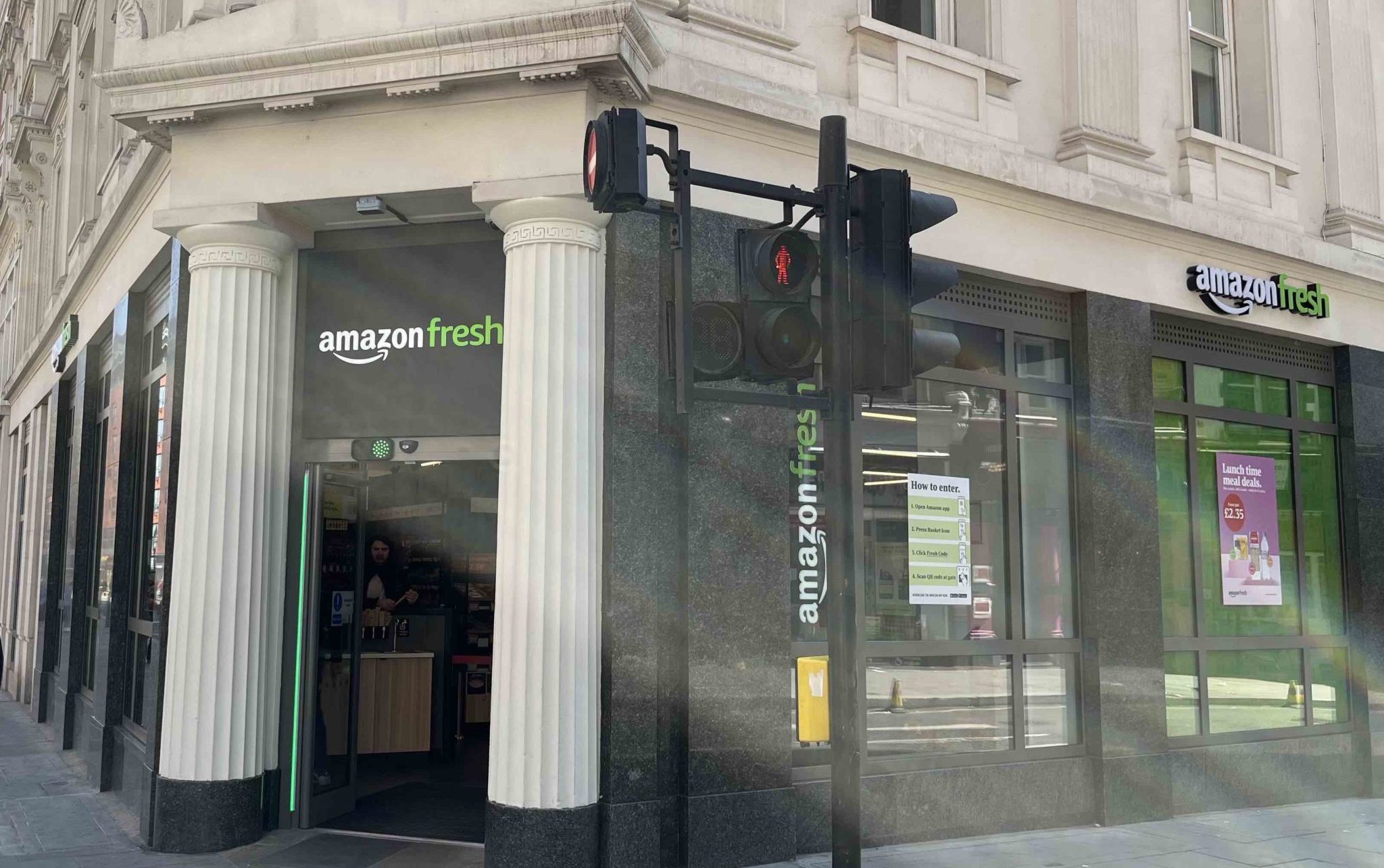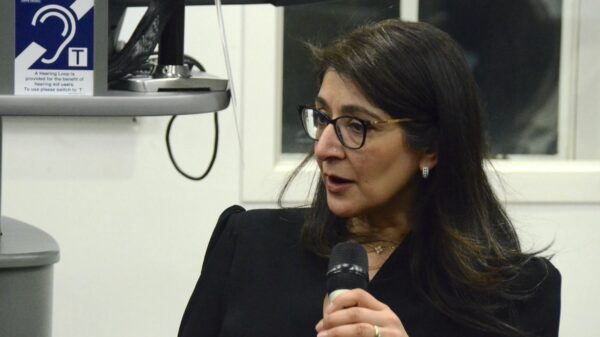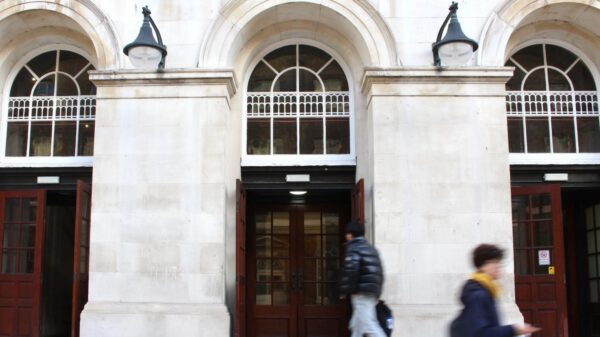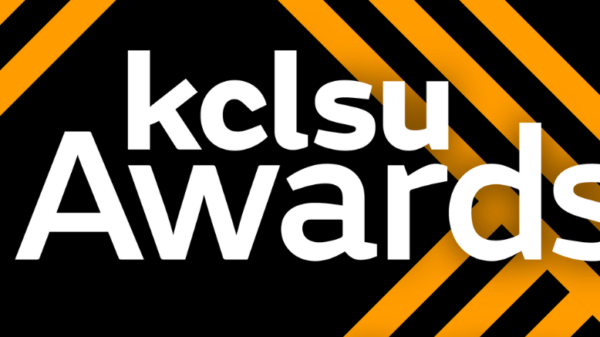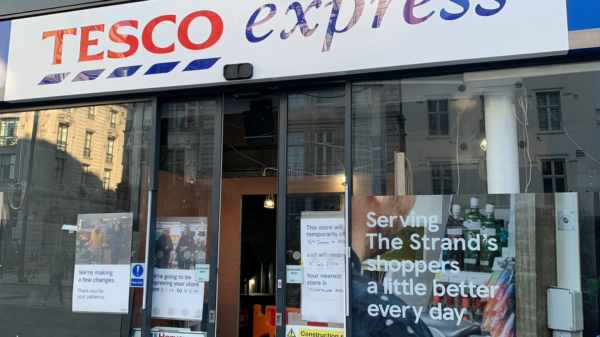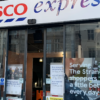Roar writer Marino Unger-Verna on a great way to snag free lunches near campus at Amazon Fresh… for those willing to pay a steeper price.
The term “free” is high up on a student’s list of favourites, right alongside “tuition fee rebate”, “two-for-twelve”, and “MCF”. There are lots of great deals out there for students in London: Pret’s free one-month coffee subscription trial, TooGoodToGo’s wide variety of discounted perishables, chains like Greggs and Leon which offer free treats for new users on their mobile apps… the list could go on. One brand which is often overlooked when it comes to brick and mortar bargains, though, is Amazon.
Amazon Fresh has slowly been spreading its locations across Greater London, with 17 stores scattered from Central London regions near campus such as Holborn and Southwark all the way to Chingford and Hounslow. The concept behind them is simple. Customers scan a code on their Amazon App at the door and are let into small, Tesco Express-style supermarkets featuring everything from shockingly overpriced meal deals to home cleaning goods. The fun part comes at the checkout stage – or lack thereof. If you want to buy something, all you have to do is pick it up and leave the store. No scanning, no recording, nothing but a customer leaving the store with a newfound anxiety that they’ve just committed a crime entirely by accident.
The tech behind this innovation is fascinating, if a bit strange. To the surveillance-wary among you: the Amazon Fresh store is not your cup of tea. These stores use a complex network of RFID tags, artificial intelligence, sensor data, and camera footage to determine what customers have taken with them versus what’s been picked up and put down again. While visiting Amazon Fresh is an utterly surreal experience – your app will even tell you how long your visit was down to the second – I’ve yet to be charged for an item I haven’t taken with me or escape with a freebie.
Now that we have the basics out of the way, we can get to the reason you’re really here. If you have an Amazon Prime account – and you’ll need to, if you want to enter these stores – you can claim £10 off any shop at one of the newer Fresh stores around London. For me, this was the Southwark store, located conveniently near Guy’s Campus opposite the Shard. I picked up some bits for my flat and, for the hell of it, a meal deal. It cost me just over £9 and was covered by the promotion. Once I’d gotten over the irrational fear that Amazon security staff were going to chase after me demanding I return the stolen food, I had a small laugh about the entire concept and then decided I’d never, ever go back.
The next week, I was hungry. I decided, why not, I can try one of their muffins. I paid £0.75 for a blueberry-cheesecake treat, left with slightly more confidence, and enjoyed my spike in blood sugar. Around an hour later, when I received my receipt via email, I noticed a pleasant surprise: I’d been offered a free coffee on my next visit. Naturally, when I return to claim this, I treated myself to another muffin…after which I was offered a further £10 off food, across multiple days if necessary, no purchase required.
Reader, I hope you share in my surprise when I tell you I’ve repeated this absurd cycle four times and counting. Provided you spend a small amount of money on food when maxing out your prior discount, Amazon seems to be utterly committed to getting you back in these stores, no matter the cost. On one hand, this is wonderful. I haven’t had to think about packing lunch for campus study sessions in weeks. On the other, what exactly is reasonably taxed neo-despot Jeff Bezos getting to warrant this perpetual star treatment?
By now, it’s no secret that companies like Amazon absolutely love collecting user data. According to the company’s privacy policy, this data is sorted into three types: user-offered, automatic, and outside information. The first information category, “information you give us”, is triggered when you do almost anything on or through any Amazon service. Have an Alexa-compatible device in your home? Amazon knows what you’re asking it, what you’re ordering from it, and where it’s being delivered. Ordered something online on a whim? Bezos will be sure to remember everything about that interaction for as long as General Data Protection Regulations, or GDPR, will allow.
The equation gets muddier when we examine what Amazon does with all this data. While the company states that it does not sell customer data to third-party companies directly, it does offer “interest-based advertisement” services to these companies, allowing them to track and target user behaviour to promote their own products. You can always opt out of these types of ads, but the data itself will still be collected unless, as Kate O’Flaherty puts it for The Guardian, you decide “not to use the service at all”.
Unfortunately, the further we sink into the Internet age, the more this type of data collection becomes inevitable. No matter what you’re doing – Googling the solution to a home repair, browsing Twitter or Instagram, searching directions to an address – someone somewhere is collecting your information to pass along to a company with the money to pay for it. This type of collection is new only in efficiency; back in the golden age of in-person capitalism, your data was represented in broad consumer trends and averages collected by corporate teams seeking to maximise profits wherever possible. To conclude with a needlessly complex metaphor, the Internet is like a magnifying glass focusing a ray of sunlight to fry a bug. Take one guess who the bug is, and who’s holding the glass.
Bearing this mildly dystopian fact of modern life in mind, where are we left on the question of whether or not to take advantage of the free meal deals and coffee available at Amazon Fresh? That’s down to how data-conscious you are. For readers like me who have resigned themselves to our inevitable existences as data-producers for companies with larger gross domestic product than whole nations: enjoy your prawn pasta salad and Diet Coke, you’ve earned it. For those of you who haven’t quite given up as readily, maybe consider visiting your local Tesco or KCLSU venue instead. It might sting your wallet slightly more, but you can rest in the comfort that your meal of choice went (relatively) unnoticed.
Previously Editor-in-Chief of Roar News. Best Interview, SPANC 2022. Classics with English BA student, graduating Summer 2022. Perpetually caffeinated.

